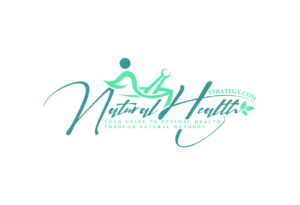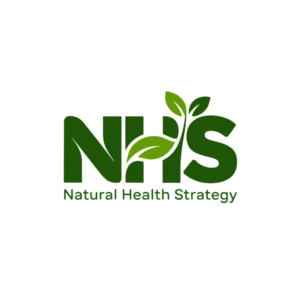Innovative health methods are essential in today’s world, where health challenges are constantly evolving. As populations grow and lifestyles change, traditional approaches can no longer meet every need. Chronic diseases, mental health issues, and the demands of aging societies call for fresh, effective solutions. Healthcare professionals are responding with cutting-edge practices and tools that improve patient care and outcomes.
By embracing these new methods, the healthcare industry is making significant strides in tackling some of today’s most pressing health concerns. Let’s explore the trends, advancements, and impacts shaping the future of healthcare.
Emerging Trends in Health Care
The healthcare industry is seeing rapid advancements, driven by innovative health methods that focus on personalized, efficient, and preventative care. Some key trends shaping the future of health care include:
- Personalized Medicine: Treatments are increasingly tailored to individuals based on their genetic profiles. This approach helps target therapies more effectively, improving outcomes and reducing side effects.
- Telemedicine: Virtual consultations and remote monitoring have become more common. This trend increases accessibility, especially for patients in rural or underserved areas.
- Wearable Technology: Devices like smartwatches track vital signs, fitness levels, and sleep patterns. These tools provide real-time health data, empowering individuals to take control of their health.
- Artificial Intelligence (AI): AI is transforming diagnostics and treatment planning. It can analyze vast amounts of data, helping doctors make quicker and more accurate decisions.
- Preventative Health Care: There’s a growing emphasis on prevention, with wellness programs focusing on diet, exercise, and mental health to reduce the risk of chronic diseases.
These trends represent a shift toward a more proactive, personalized approach to health care, with technology playing a crucial role in enhancing patient outcomes.
Case Studies of Pioneering Approaches
Several pioneering approaches have already shown remarkable results in improving patient care and outcomes. Below are a few real-life examples of innovative health methods in action:
- Cancer Immunotherapy: Traditional cancer treatments often involve chemotherapy, which can damage healthy cells. Immunotherapy, however, uses the body’s immune system to target cancer cells specifically. This method has significantly improved survival rates for certain types of cancer, such as melanoma and lung cancer.
- 3D Printing for Prosthetics: Custom-made prosthetics created through 3D printing technology are revolutionizing care for amputees. These prosthetics are more affordable, accessible, and tailored to the individual’s body, providing a better fit and improving mobility.
- Stem Cell Therapy for Heart Disease: Stem cells are being used to repair damaged heart tissue in patients with heart disease. This regenerative approach reduces the need for invasive surgeries and offers new hope for recovery.
- Robotic-Assisted Surgery: Surgeons are increasingly using robotic systems for precise, minimally invasive operations. This approach reduces recovery time, decreases complications, and enhances accuracy during complex surgeries.
These innovative methods are pushing the boundaries of what is possible in health care, offering new ways to tackle challenging health conditions and improving the quality of life for patients.
The Impact of Technology on Health Solutions

Technology has become a game-changer in health care, transforming how treatments are delivered and monitored. Several technological advancements are significantly shaping modern health solutions:
- AI and Machine Learning: AI-powered tools help with early diagnosis and predictive analytics. For instance, AI algorithms can detect patterns in medical imaging, identifying conditions like cancer or heart disease faster than traditional methods.
- Telehealth Platforms: Telemedicine allows patients to receive medical advice, treatment, and follow-up care remotely. This improves access to healthcare, especially in rural areas, and reduces the need for in-person visits.
- Wearable Health Devices: Smartwatches and fitness trackers continuously monitor vital signs, such as heart rate, blood pressure, and even oxygen levels. This real-time data helps both patients and doctors keep track of health trends, detect abnormalities early, and adjust treatment plans accordingly.
- Virtual Reality (VR) Therapy: VR is being used in physical rehabilitation and mental health therapy. Patients with PTSD, chronic pain, or anxiety can engage in immersive experiences that help reduce symptoms and improve mental well-being.
- Blockchain for Data Security: Blockchain technology ensures secure storage and transfer of patient health records. This innovation helps protect sensitive information, streamlining communication between healthcare providers without compromising privacy.
Technology’s impact on health solutions is profound. It enables faster diagnoses, more personalized care, and greater accessibility, all while improving patient outcomes.
Personal Stories and Experiences
Many patients and healthcare professionals have shared inspiring stories about how innovative health methods have transformed their lives. These personal accounts highlight the real-world impact of new treatments and approaches.
- Lisa’s Story: Managing Diabetes with Wearable Technology
Lisa, diagnosed with type 1 diabetes, struggled to manage her blood sugar levels. However, after starting to use a continuous glucose monitor (CGM) linked to her smartwatch, she gained real-time insights into her condition. As a result, this technology allowed her to adjust her diet and insulin intake more precisely, significantly improving her health and reducing complications. - Tom’s Journey: Overcoming Chronic Pain with VR Therapy
Tom had been living with chronic back pain for years. Traditional pain management methods provided little relief. Fortunately, his doctor introduced him to virtual reality therapy, which changed everything. By engaging in immersive VR sessions designed to reduce pain perception, Tom experienced significant improvement and now relies less on pain medications. - Sarah’s Experience: Beating Cancer with Immunotherapy
After being diagnosed with melanoma, Sarah was initially overwhelmed by the prospect of chemotherapy. Thankfully, her doctors suggested trying immunotherapy, a newer treatment that boosts the body’s immune system to fight cancer. After several sessions, her cancer went into remission. Now, Sarah advocates for others to explore innovative health treatments.
These personal stories demonstrate the transformative power of cutting-edge health methods. Whether managing chronic conditions or battling serious illnesses, these approaches offer hope and improved quality of life.
Challenges and Considerations
While innovative health methods offer numerous benefits, several challenges must be addressed for successful implementation. Understanding these obstacles can help healthcare providers and patients make informed decisions.
- Cost and Accessibility: One of the primary challenges is the high cost of many new treatments and technologies. For example, therapies like immunotherapy or advanced medical devices are often expensive, making them less accessible to all patients. As a result, there is an ongoing need to reduce costs and ensure these innovations reach broader populations.
- Training and Expertise: Another challenge is that healthcare professionals must receive specialized training to effectively use new technologies, such as AI-based diagnostics or robotic-assisted surgeries. Without proper training, the full potential of these tools may not be realized, and patient outcomes could suffer.
- Regulatory Approvals: Introducing new health methods often involves navigating complex regulatory processes. It takes time for innovative treatments to gain approval from governing bodies, such as the FDA or EMA. While these processes ensure safety and efficacy, they can delay patient access to groundbreaking solutions.
- Patient Trust and Adoption: Patients may also feel uncertain about trying new treatments. Building trust through education and transparent communication is key to encouraging the adoption of innovative health methods. Additionally, patients need to understand the benefits and potential risks before embracing these new approaches.
By addressing these challenges, the healthcare industry can ensure that innovative health methods are not only effective but also accessible and trusted by both professionals and patients alike.
Looking Ahead: Future Innovations
The future of health care offers exciting possibilities as advancements continue to emerge. Technology evolves rapidly, and scientific understanding is deepening, driving several trends that will shape the next wave of innovative health methods:
- Gene Editing and CRISPR Technology: Researchers are using CRISPR to target genetic disorders at their source. This technology could soon cure conditions previously deemed untreatable, such as cystic fibrosis or muscular dystrophy.
- Artificial Intelligence in Personalized Medicine: AI will increasingly tailor treatments to individual patients. By analyzing vast data sets, AI provides highly personalized health solutions, including customized medications and lifestyle adjustments based on genetic data.
- Regenerative Medicine and Stem Cells: Stem cell therapy is expanding its reach in medicine. Soon, we may repair or regrow damaged tissues and organs, offering new hope for treating spinal cord injuries and degenerative diseases.
- Nanotechnology in Health Care: Nanotechnology promises to revolutionize treatment methods, particularly in drug delivery. Tiny nanoparticles target diseased cells directly, reducing side effects and boosting treatment efficiency.
- Wearable Health Tech and Remote Monitoring: Wearable devices are becoming more advanced, detecting early signs of disease before symptoms appear. Continuous health monitoring allows for proactive care and timely intervention, improving overall outcomes.
As these innovations develop, health care will become more efficient, personalized, and preventive. Embracing these advancements will improve treatments and enhance patient well-being.
Conclusion
Innovative health methods are reshaping how we approach modern health challenges. From personalized medicine and telehealth to AI-powered diagnostics and regenerative treatments, these advancements offer new solutions to both common and complex medical conditions. The integration of cutting-edge technology is improving patient outcomes, making health care more accessible, efficient, and personalized.
However, challenges like high costs, regulatory hurdles, and the need for specialized training must be addressed to ensure widespread adoption. As we continue to push the boundaries of what’s possible in health care, it’s essential to support and explore these innovations. By doing so, we can improve the quality of life for individuals and address the ever-evolving demands of global health.
References
- Emerging Digital Technologies in Healthcare
Link(MDPI) - AI and Digital Health Transformation
Link(World Economic Forum) - Tech-Driven Healthcare Innovations
Link(TechAdvisory)





